Short Takes... On Big News at the College
News @ TC
The education crisis of the global refugee population; how to create math identities for young people of color; intolerance in post-election America; lying in psychotherapy; and more.
Educating the Displaced
How to Build Futures for Generations in Limbo
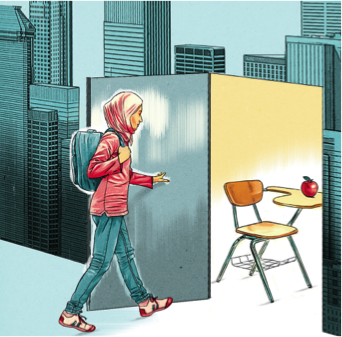
A report released in early March by Teachers College faculty members Mary Mendenhall, S. Garnett Russell and Elizabeth Buckner, “Urban Refugee Education: Strengthening Policies and Practices for Access, Quality, and Inclusion,” is the first-ever global study of urban refugee education. Funded by the U.S. State Department Bureau of Population, Refugees, and Migration, it documents the lack of access to schools and other educational and support services for displaced children, a majority of whom have settled in cities and urban areas rather than clustering in camps.
The TC team interviewed 190 respondents working for UN agencies and international and national non-governmental organizations in 16 countries across the Middle East and North Africa, Latin America, Sub-Saharan Africa and Asia. They conducted additional, in-depth case studies in Nairobi, Kenya; Beirut, Lebanon; and Quito, Ecuador.
Mendenhall, who led the study, says the findings suggest that “the world community must uphold its collective responsibility to help children and youth who have fled regions affected by armed conflict go to and stay in school. By ignoring this responsibility, we risk losing yet another generation of children to illiteracy, ignorance, poverty and the need to turn toward desperate and extreme solutions to meet their basic needs.”
Read the full report at tc.columbia.edu/ure2017.
Cub Actor Lands Dream Role

Fifth-grader Devin Graves of the Teachers College Community School (TCCS) is touring professionally as the cub Simba in “The Lion King”. Devin constantly draws on the innovative TCCS music curriculum, which — supported by the Morse and Nelson families — has included violin (third grade), choir (fourth grade), composition (fifth grade) and membership in TCCS’s award-winning orchestra. “Our teachers treat us like adults. I know many schools don’t offer any music, and I feel badly for those students,” he says.
Two for the Ages
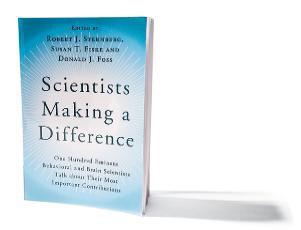
Jeanne Brooks-Gunn explores the confluence of genes and the environment. The late Morton Deutsch was a pioneer in conflict resolution. Yet the two TC psychologists share common ground: Both appear in Scientists Making a Difference: One Hundred Eminent Behavioral and Brain Scientists Talk about Their Most Important Contributions (Cambridge 2016). And both have clear goals. Wrote Deutsch: “I wanted to do work that would contribute to the development of a peaceful world.”
Hidden Figuring: Surfacing Math Socialization
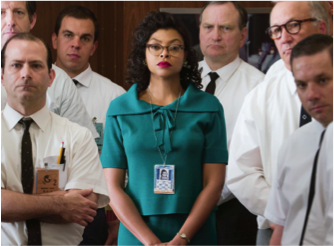
Honors & Distinctions
Psychologist W. Warner Burke received an Outstanding Civilian Service Medal Award from the Department of the Army for co-founding the Eisenhower Leader Development Program for tactical officers at the U.S. Military Academy at West Point.
Ernest Morrell, Macy Professor of Education, received the Divergent Award for Excellence in 21st Century Literacies, given by the Initiative for 21st Century Literacies Research.
Marie Miville, Professor of Psychology & Education and Chair of TC’s Department of Counseling & Clinical Psychology, received the Janet E. Helms Award for Mentoring and Scholarship at TC’s Winter Roundtable for work on multicultural gender roles and wellness in marginalized communities.
Kimberly Noble, Associate Professor of Neuro-science & Education, received the Association for Psychological Science’s Janet Taylor Spence Award for Transformative Early Career Contributions.
AERA’s President-Elect: Amy Stuart Wells
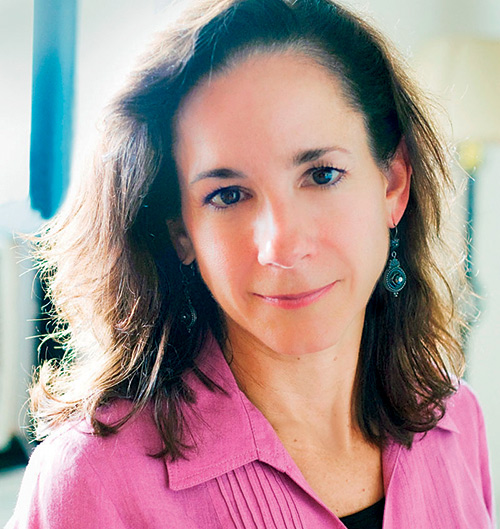
ED Tech 2.0

TC Workshops
John Dewey, speaking from beyond? No, just a van beaming “Education = Democracy” onto TC’s exterior one evening in March. The occasion — “YOUR ROLE IN DEMOCRACY: Beyond the Protest,” co-sponsored by TC’s Student Senate — featured Women’s March on Washington Co-Chair Carmen Perez, the Anti-Racist Alliance and a workshop on grassroots campaigning. “I loved coming here,” said light show auteur Mark Read of the Illuminator Collective. “TC has always been about making education equal and open to all.”
Aessessing Intolerance in Post-Election America
“Communities like Flint, Ferguson and Standing Rock are even more vulnerable now” because “we don’t have leadership in the White House who acknowledge racism, classism” and other forms of oppression. “It is more important to speak out on these issues and raise awareness within psychology and education.”
-Faculty member Gregory Payton at TC’s 37th Winter Roundtable, “from Ferguson to Flint: Multicultural competencies for community-based trauma”
Loud Reports: Headline-Makers from TC
New findings on honesty in psychotherapy, the children’s maker movement and reimagining “place” in inclusive education
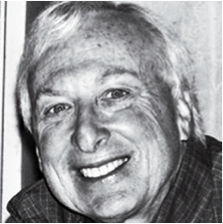
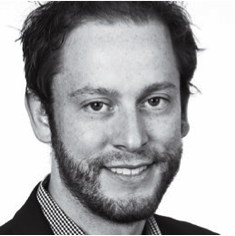
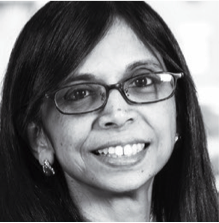
IN BRIEF
- Henry M. Levin, William Heard Kilpatrick Professor of Economics & Education, received the 2017 Distinguished Contributions to Research in Education Award given by the American Educational Research Association (AERA).
- Mariana Souto-Manning, Associate Professor of Early Childhood Education, received AERA’s 2017 Division K Mid-Career Award for her contributions to teaching and teacher education.
- Detra Price-Dennis, Assistant Professor of Elementary & Inclusive Education, received the Division K Early Career Award.
- ZhaoHong Han, Professor of Language & Education, gave the keynote address, “What Kind of Proficiency Should Be Sought After in ESP Education and How,” at China’s Fifth Conference on ESP (English for Specific Purposes).
- Xiaodong Lin, Associate Professor of Cognitive Studies, was a special keynote speaker at the annual gathering of the National Council of Teachers of Mathematics, the nation’s largest organization of mathematics teachers, in April. Lin, who is not a mathematician, presented her research showing that science test scores improve for high school students who learn that even great scientists fail and struggle throughout their careers.
- TC Curriculum & Teaching doctoral student Tran Nguyen Templeton received a $20,000 American Educational Research Association Minority Dissertation Fellowship.
Published Thursday, Jun 15, 2017